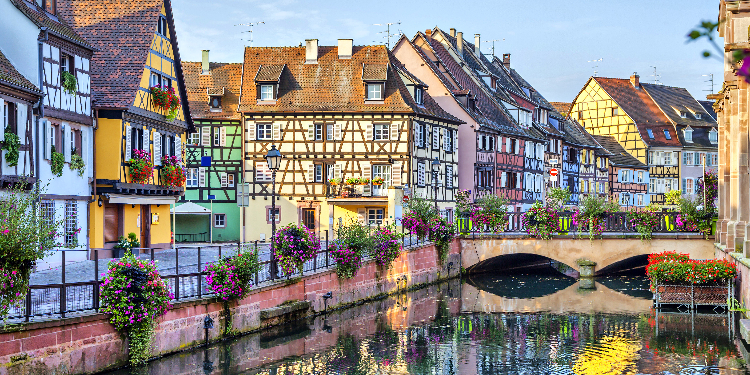
When we think of “moving abroad”, we often think of living the big life in a big city. There does not even seem to be a need to explain why moving to a big city would make sense. Everything is just easier in a big city. In small towns, everything is more complicated. Do the residents themselves not “go up to the city?” But, far from the clichés, small towns have many advantages.
The hidden power of small towns
Unless one is directly transferred to his new city, finding work is the expatriate's first concern. Hence the choice of the big city: more practical, simpler. However, while it is true that large cities offer more job opportunities, competition is also tougher.
The more modest municipalities, on the other hand, are underestimated. They also have their strengths and are always looking for people to work in education, health, environment, trade and exchanges etc. Expatriate status can even be an advantage in these smaller towns seeing as you will potentially be the only one who speaks multiple languages. And if, in addition, you master the local language, this is the perfect combo!
While networking is also easiest in big cities, it can be a lot more rewarding in smaller towns. Indeed, one is more likely to find big expat communities in bigger cities, sharing contacts and making networking easier. But you also quickly become a stranger in big cities. Constantly meeting new people and massive exchange of contacts does not leave much space for connecting meaningfully.
In small towns, even very small towns where “everyone knows each other”, building a network on a human scale is more rewarding, both professionally and personally. Work colleagues become friends with whom we discover our new living environment. Colleagues, friends with whom we can practice the language.
As paradoxical as this sounds, small towns also take us out of our comfort zone. The locals often speak only their language, the expatriate is, therefore, pushed to learn faster, has more interaction with the locals, for better integration. Living in big cities, we are more likely to fall back on what we know already: expatriate communities, international circles, English. It can feel like home and at the end of the day, you don't really push yourself to see what's out there.
Another great advantage of smaller towns: the accommodation, often more spacious and cheaper than that of cities. There is more chance of quiet neighborhoods. The food is also affordable, as long as you eat locally. Ditto for transport: rurality even encourages to invest in bicycles, and other means of green transport. It's good for the heart and for the planet.
There it is, the hidden power of small towns: caught in the frenetic race of mega-cities that never sleep, we tend to forget the essentials. Small towns are often closer to nature. Opportunity to reconnect with yourself, to do activities that you wouldn't do in bigger cities.
Lost in a small town
Why not extend the “small town” experience for a lifetime? The idea delights as much as it scares…
If you do not speak the local language, it can be harder in small towns than in bigger cities to build a social network. In an isolated commune, not speaking the local language weighs heavily on daily life. Impossible to create real bonds with the locals, who often speak only their language. Difficulties to integrate into social life, to find one's place. The risk of isolation is great, especially since there will rarely be an expatriate community to rely on.
Psychological and physical isolation: transport in rural areas is less numerous than in urban area. No subways, few trains, buses, but much less frequent than in big cities. A car, therefore, becomes essential. Homesickness, a feeling of exclusion, living in a small town can be difficult.
Instead of choosing the big city - a nice solution - it is better to stay in tune with its principles and character. The mega-city that never sleeps may not be the best choice for the introvert. The little town may not be suitable for the extrovert, unless there are activities that will be enough to keep them busy.
Perhaps the solution is in between. A medium-sized city, not too far from the big cities, not too close either. A good compromise, to enjoy the benefits of both lifestyles.



















